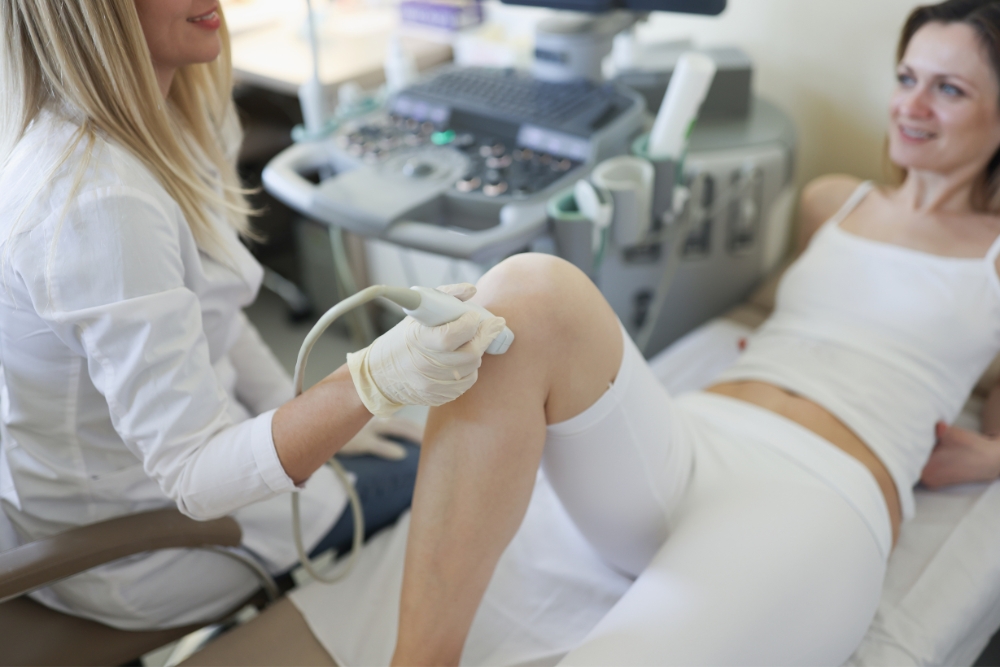Don’t Ignore These Signs – Crohn’s Disease in Women
Crohn’s disease can affect anyone, but in women it often presents with unique challenges and symptoms that may be mistaken for other conditions. Abdominal pain, fatigue, or changes in digestion should not be overlooked. Understanding the early signs of Crohn’s disease in women is essential for timely medical attention and better long-term health outcomes.

How Crohn’s Disease Affects Women
Women with Crohn’s disease face distinct challenges that set their experience apart from men. Hormonal changes during menstrual cycles, pregnancy, and menopause can significantly influence disease activity and symptom severity. Estrogen fluctuations may trigger flare-ups, with many women reporting worsened symptoms during certain phases of their menstrual cycle. Additionally, women are more likely to develop perianal complications and may experience more severe fatigue and joint pain compared to their male counterparts.
The disease can also impact fertility and pregnancy outcomes. Women with active Crohn’s disease may face challenges conceiving, and managing the condition during pregnancy requires careful monitoring and specialized care. Nutritional deficiencies common in Crohn’s patients, such as iron, folate, and vitamin B12 deficiencies, can be particularly problematic for women of childbearing age.
Early Signs of Crohn’s Disease in Women
Recognizing the early warning signs can make a significant difference in treatment outcomes. Key early indicators include:
-
Persistent abdominal pain and cramping, often in the lower right area
-
Chronic diarrhea lasting more than four weeks
-
Unexplained weight loss despite normal eating habits
-
Rectal bleeding or blood in stool
-
Severe fatigue that doesn’t improve with rest
-
Low-grade fever that comes and goes
-
Decreased appetite and nausea
-
Mouth sores or ulcers
These symptoms may develop gradually and can be mistakenly attributed to stress, dietary changes, or other common digestive issues. Many women initially dismiss these signs, particularly if they coincide with menstrual symptoms or life stressors.
Unique Crohn’s Symptoms in Females
Women may experience several gender-specific symptoms that don’t commonly occur in men. These unique manifestations include:
-
Irregular menstrual periods or amenorrhea
-
Severe menstrual cramps that worsen over time
-
Vaginal fistulas or abscesses
-
Painful intercourse due to inflammation
-
Increased urinary tract infections
-
Skin conditions like erythema nodosum
-
Eye inflammation or uveitis
-
Osteoporosis at a younger age due to chronic inflammation and steroid use
These symptoms often develop alongside traditional digestive symptoms but may be overlooked during initial medical evaluations, leading to delayed diagnosis and treatment.
Recognizing Crohn’s Disease in Women
Healthcare providers and patients should be aware of the diagnostic challenges specific to women. Symptoms may be cyclical, correlating with menstrual cycles, which can complicate the clinical picture. Women are also more likely to have involvement of the small intestine, which can make diagnosis more challenging compared to colonic disease.
The diagnostic process typically involves a combination of blood tests, stool samples, imaging studies like CT scans or MRI, and endoscopic procedures. Women should advocate for thorough evaluation if they experience persistent symptoms, especially if multiple symptoms occur together or interfere with daily activities.
Managing Crohn’s Disease Symptoms in Daily Life
Effective daily management requires a comprehensive approach that addresses both medical treatment and lifestyle modifications. Women should work closely with gastroenterologists who understand the gender-specific aspects of the disease. Treatment plans may need adjustment during different life phases, particularly during pregnancy, breastfeeding, or menopause.
Dietary management plays a crucial role, with many women finding relief through elimination diets or anti-inflammatory eating patterns. Stress management techniques, regular exercise adapted to energy levels, and adequate sleep are essential components of comprehensive care. Support groups specifically for women with Crohn’s disease can provide valuable emotional support and practical advice for managing work, family, and social responsibilities while living with a chronic condition.
Treatment Options and Healthcare Providers
Various healthcare systems and specialized centers across the country offer comprehensive Crohn’s disease management programs. Major medical centers like Mayo Clinic, Cleveland Clinic, and Johns Hopkins provide multidisciplinary care teams that include gastroenterologists, nutritionists, and mental health professionals. Many insurance plans cover Crohn’s disease treatment, though costs can vary significantly depending on the specific treatments required and insurance coverage details.
| Provider Type | Services Offered | Key Features |
|---|---|---|
| Academic Medical Centers | Comprehensive care teams, research trials | Latest treatment options, specialized expertise |
| Private Gastroenterology Practices | Individualized care, flexible scheduling | Personalized attention, shorter wait times |
| Integrated Health Systems | Coordinated care across specialties | Seamless communication between providers |
Women with Crohn’s disease have unique needs that require specialized attention and comprehensive care. Early recognition of gender-specific symptoms, combined with appropriate medical management and lifestyle modifications, can significantly improve outcomes and quality of life. Working with healthcare providers who understand these distinctions is essential for developing effective treatment strategies that address both the medical and psychosocial aspects of living with this chronic condition.
This article is for informational purposes only and should not be considered medical advice. Please consult a qualified healthcare professional for personalized guidance and treatment.




